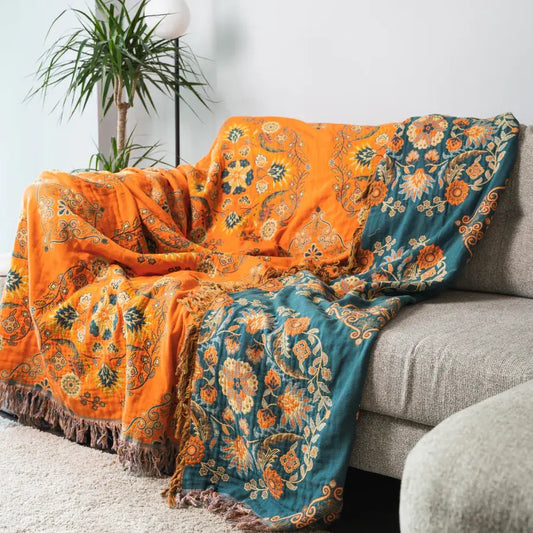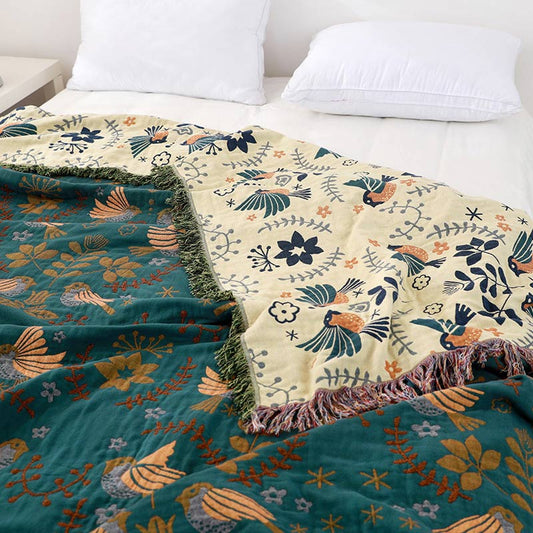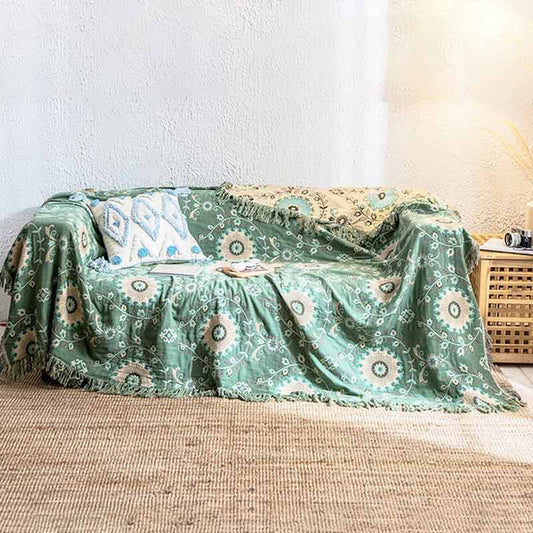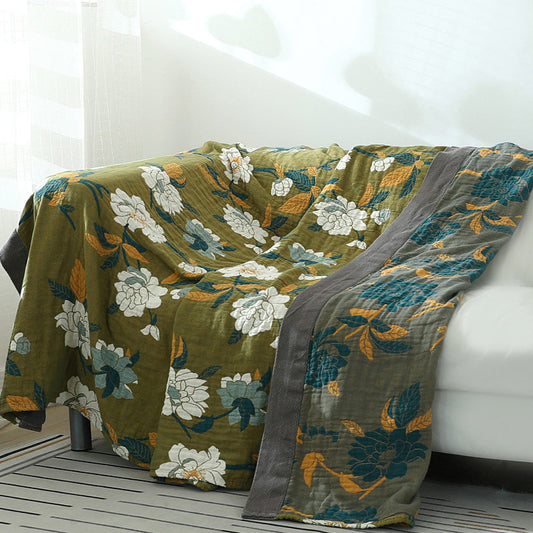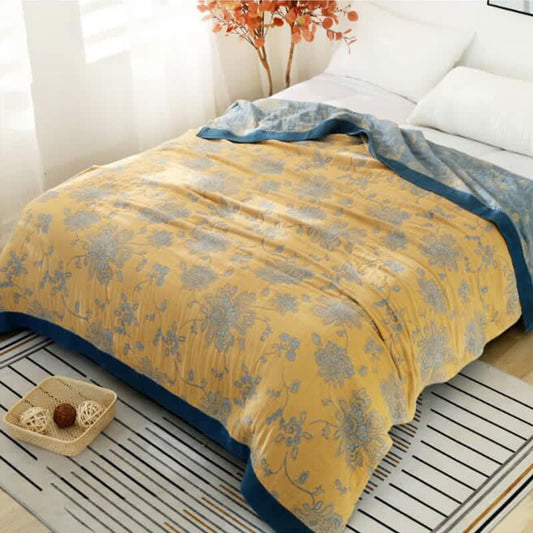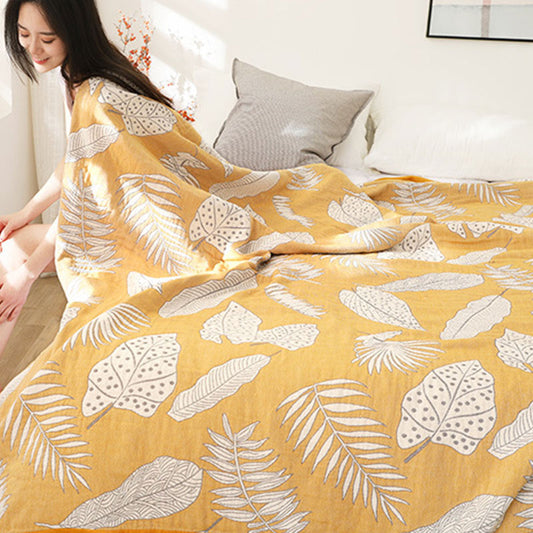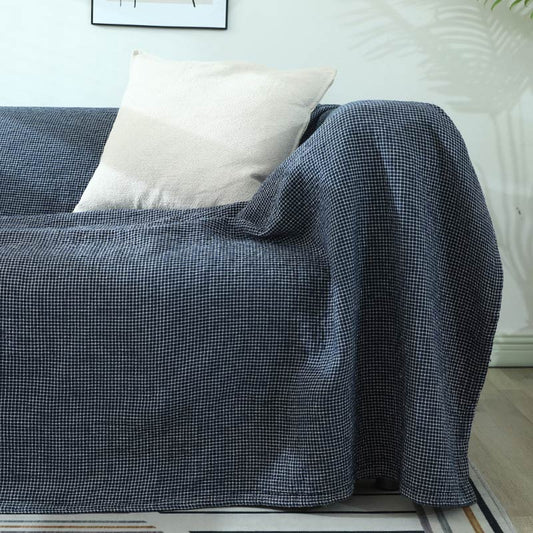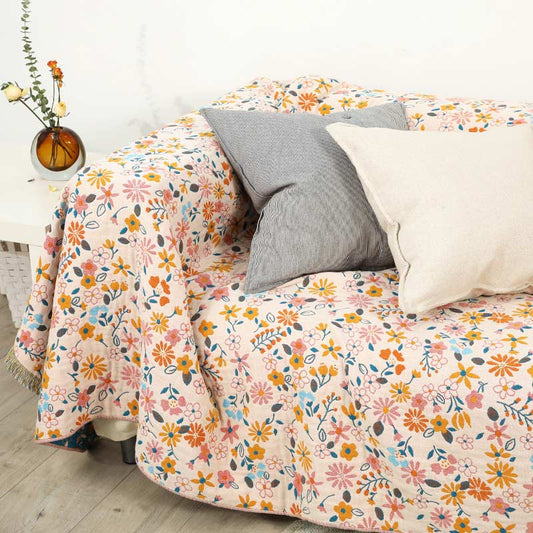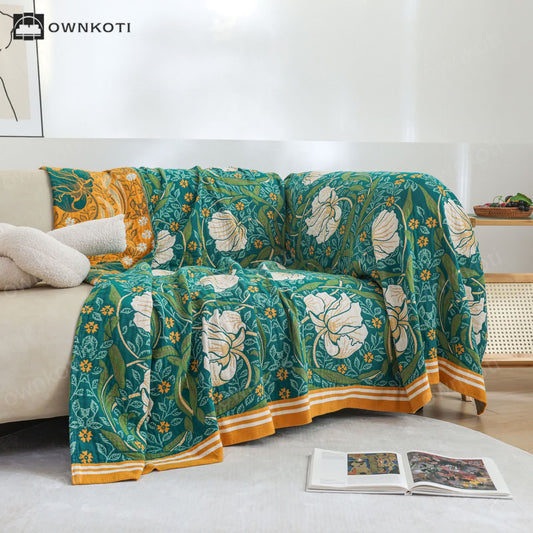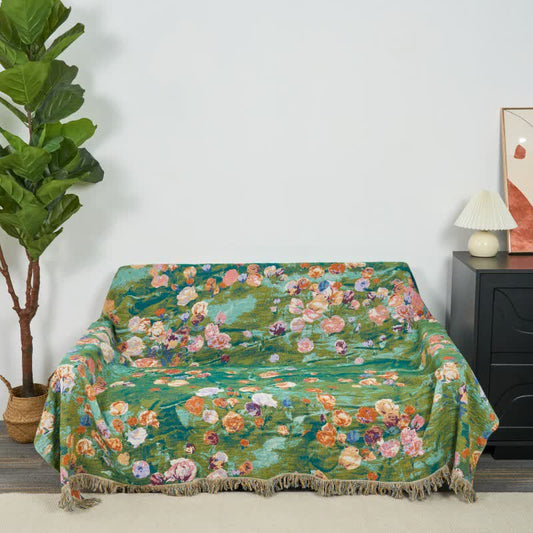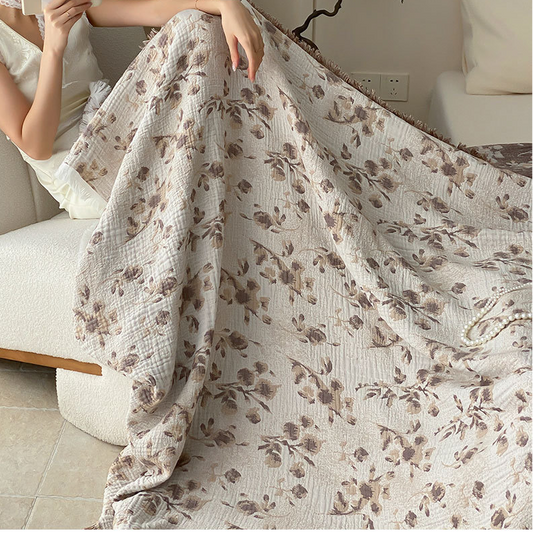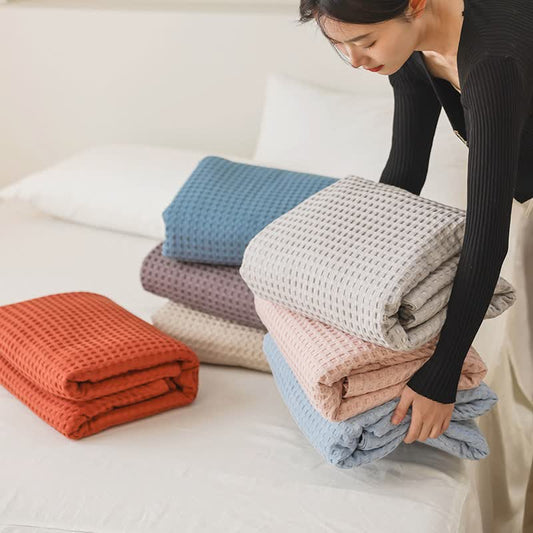Cotton Blankets
FAQs
What are the benefits of using a cotton blanket compared to synthetic blankets?
Using a cotton blanket offers numerous benefits compared to synthetic alternatives. Cotton is a natural fiber known for its breathability and softness, which makes cotton blankets comfortable and gentle on the skin. Unlike synthetic blankets, which can trap heat and cause sweating, cotton blankets regulate temperature well, keeping you cool in summer and warm in winter.
Additionally, cotton blankets are hypoallergenic and less likely to irritate sensitive skin, making them a healthier choice for many people. They are also biodegradable and more environmentally friendly than synthetic fibers. Choosing a cotton blanket combines comfort, sustainability, and durability for a superior bedding experience.
Are cotton blankets breathable enough for year-round use?
Yes, cotton blankets are known for their excellent breathability, making them suitable for all-season comfort. The natural cotton fibers in cotton blankets promote airflow, wick moisture, and help regulate body temperature, which prevents overheating during warm nights. This makes cotton blankets a reliable choice even in hot climates.
In cooler weather, you can layer cotton blankets with heavier bedding for added warmth without sacrificing breathability. Their versatility ensures they stay comfortable whether used alone in summer or combined with duvets in winter. Overall, cotton blankets are a dependable, breathable option for year-round use.
Are cotton blankets suitable for babies and young children?
Yes, cotton blankets are a great choice for babies and young children due to their soft texture, breathability, and natural fibers. The hypoallergenic nature of cotton blankets minimizes irritation and allergic reactions, which is essential for sensitive baby skin. Many parents trust cotton blankets for both safety and comfort.
Additionally, cotton blankets are durable and machine-washable, making them practical for everyday use. Their gentle materials and easy maintenance make them ideal for nurseries and toddlers' rooms. With proper care, cotton blankets remain soft, clean, and safe for young users.
Can cotton blankets shrink after washing, and how to prevent it?
Yes, cotton blankets may shrink when exposed to high heat during washing or drying because cotton is a natural fiber prone to contraction. To prevent shrinkage, wash cotton blankets in cold or lukewarm water on a gentle cycle, and avoid high-temperature settings in the dryer. Air drying is ideal for maintaining size.
Using mild detergent for delicate fabrics will also protect the fibers of your cotton blankets. If tumble drying is necessary, use the low-heat setting to reduce shrinkage risk. By following these steps, you can keep your cotton blankets in great condition over time.
How does an organic cotton blanket differ in feel and durability from regular cotton blankets?
An organic cotton blanket is made from cotton grown without synthetic chemicals, giving it a softer and more natural feel compared to conventional options. Because organic cotton blanket fibers undergo less processing, they often retain a smoother texture that enhances comfort and breathability. Many people find organic cotton blanket materials gentler on the skin.
In terms of durability, an organic cotton blanket is just as long-lasting as a standard cotton blanket when properly cared for. The absence of chemical treatments may actually help preserve the integrity of the fibers over time. Choosing an organic cotton blanket also supports eco-friendly living and sustainability.
What are the environmental benefits of choosing an organic cotton blanket?
Choosing an organic cotton blanket supports eco-friendly practices by reducing the use of harmful pesticides, fertilizers, and genetically modified seeds. The farming methods used to produce an organic cotton blanket help conserve water, protect soil quality, and preserve biodiversity, leading to more sustainable ecosystems overall.
In addition, the production process for an organic cotton blanket typically requires less energy and causes less pollution than conventional cotton. By opting for an organic cotton blanket, you're making a responsible choice that benefits both the environment and your home with a safer, chemical-free product.
How can I verify that a blanket labeled 100 cotton blankets is made from pure cotton?
To confirm that 100 cotton blankets are truly made of pure cotton, look for clear labeling and trusted certifications such as OEKO-TEX or GOTS. These indicators verify that 100 cotton blankets are made from natural fibers and free from harmful substances. You can also check the product details or ask the seller for fiber content specifics.
Physically, 100 cotton blankets feel soft, breathable, and slightly textured. Reputable brands that emphasize transparency often include fiber composition and care instructions. Choosing sellers who openly share product specs ensures you're getting genuine 100 cotton blankets made from pure cotton.
Are 100 cotton blankets more prone to wrinkling or shrinking?
Yes, 100 cotton blankets are more susceptible to wrinkling and shrinking than synthetic blends due to the nature of pure cotton fibers. High temperatures during washing or drying can cause 100 cotton blankets to contract. Additionally, since cotton lacks elasticity, wrinkles form more easily during use or storage.
To reduce these issues, wash 100 cotton blankets in cold water and avoid harsh drying cycles. Use low heat or air dry when possible. Ironing on a gentle setting can smooth wrinkles without harming the fibers. With the right care, 100 cotton blankets maintain their look and size beautifully.
How do I properly wash and care for a lightweight cotton blanket to maintain softness?
To keep your lightweight cotton blanket soft, wash it in cold or lukewarm water with a gentle detergent that’s free of bleach or harsh chemicals. Avoid fabric softeners that may coat the fibers and reduce breathability. Washing your lightweight cotton blanket separately or with similar textures helps prevent abrasion.
After washing, air dry or use a low-heat tumble dry setting to protect softness and shape. Avoid high heat, which can cause shrinkage or stiffness in your lightweight cotton blanket. With regular gentle care, your lightweight cotton blanket will remain cozy, clean, and long-lasting.
How do I choose the right size of lightweight cotton blanket for my bed or sofa?
When choosing a lightweight cotton blanket for a bed, consider both the mattress size and the amount of drape you prefer. A queen-size bed typically pairs well with a 90x90 inch lightweight cotton blanket, while a king-size bed may require 108x90 inches for full coverage. For sofas, measure the seat and back areas for a good fit.
Also, consider whether your lightweight cotton blanket is intended for decoration, warmth, or both. A well-sized lightweight cotton blanket not only serves functional needs but also adds a stylish layer to your living space. Selecting the correct dimensions ensures comfort and visual balance.



